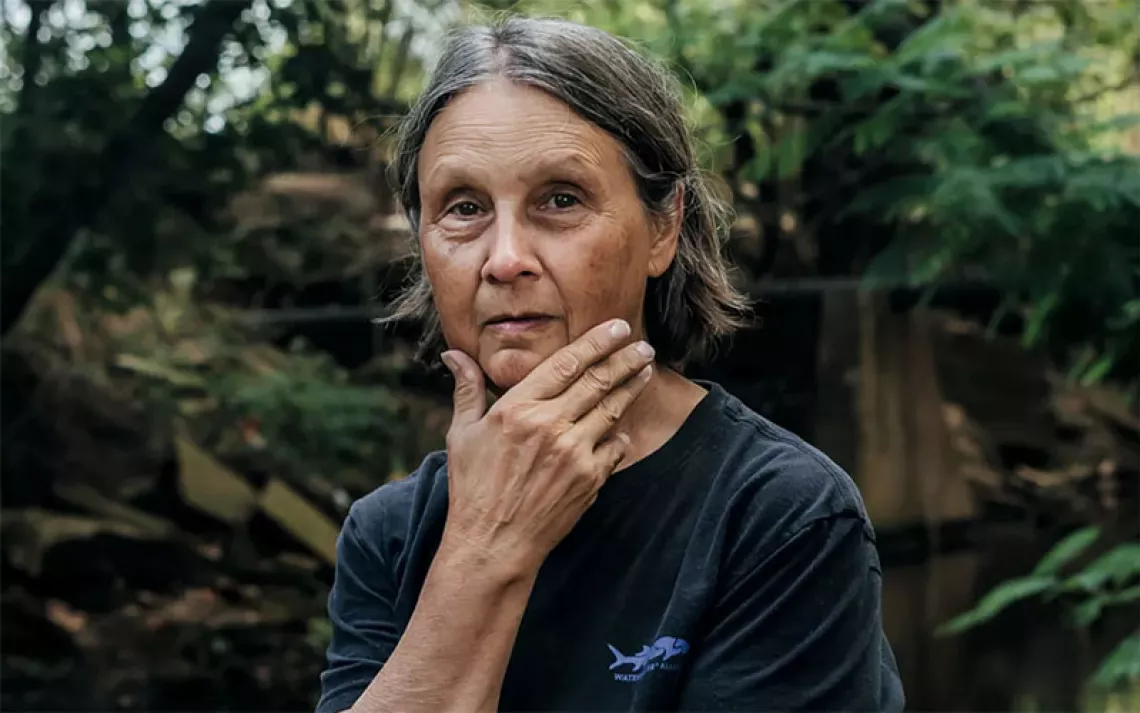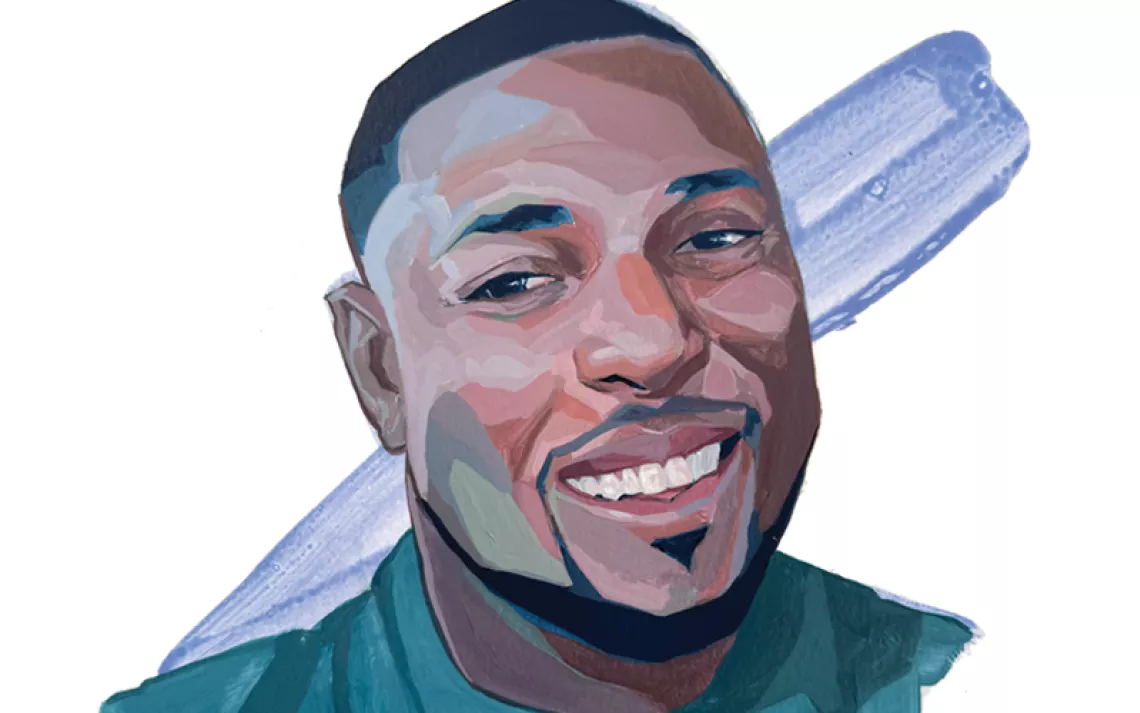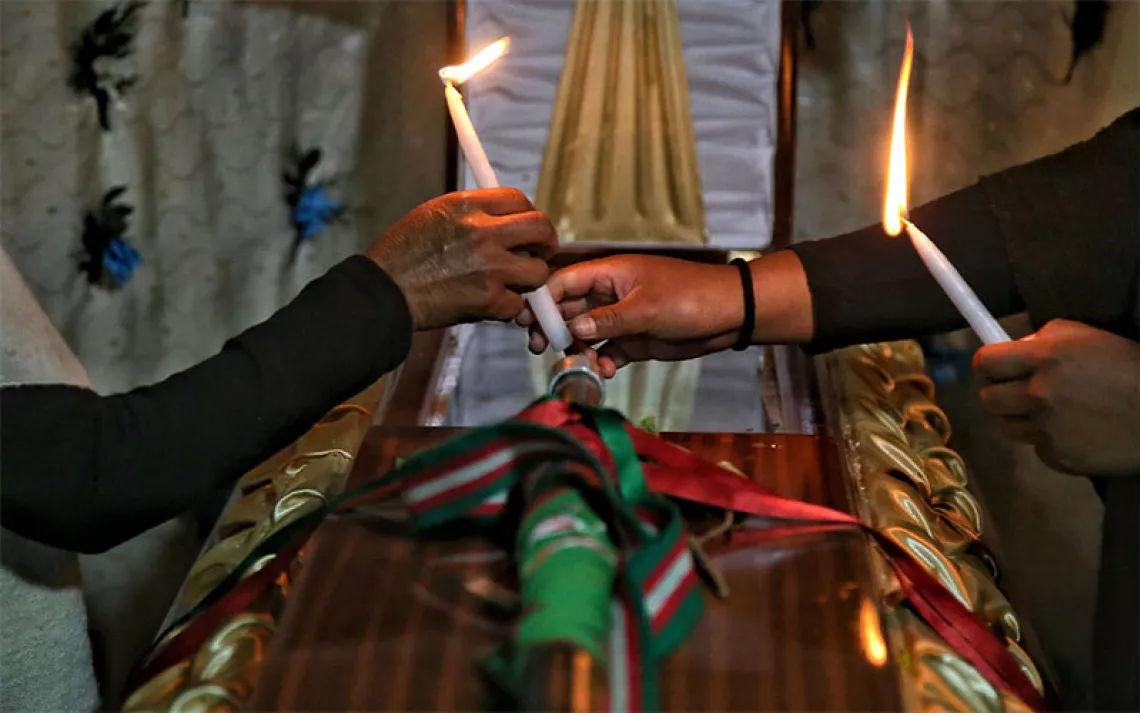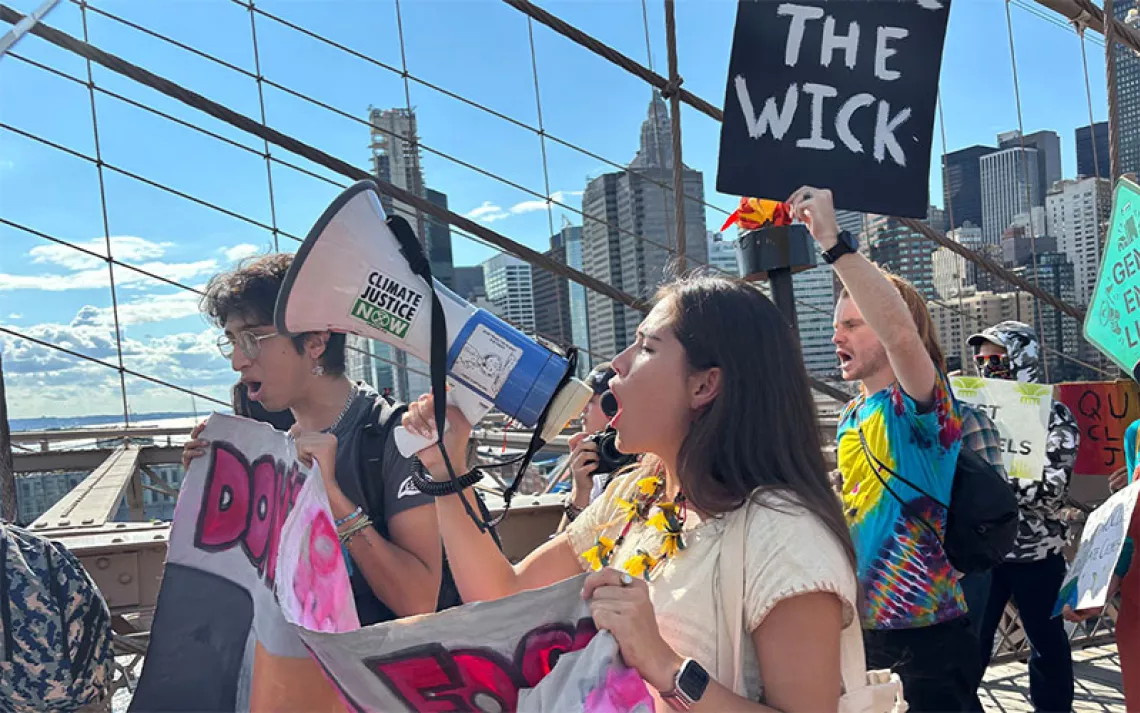Mishka Banuri's Crash Course in Political Activism
This teen helped pass a climate resolution in Utah

Mishka Banuri mobilizes young people in Utah to push for climate justice. | Photo by Kim Raff
Growing up in Salt Lake City, Mishka Banuri was accustomed to political activism. Her mother was the director of the Utah Muslim Civic League and volunteered for numerous other organizations. But something clicked when, at 14 years old, Banuri accompanied her mom to a World Religions Conference. As a Pakistani American, she had experienced both Islamophobia and the climate crisis firsthand. At the conference, she recognized connections between them—from wars fueled by oil in the Middle East to scorching temperatures in Pakistan and her home state. She told her mom, "I'm going to work for climate justice."
Banuri helped organize the People's Climate March in 2016, and she connected with a group of youth activists who were working to get the state of Utah to pass a resolution acknowledging the reality of climate change. They arranged lobby days, held meetings with legislators, and enlisted Senator Jim Dabakis to help draft a bill. When the resolution was denied a hearing, the teens held their own in February 2017. Over 100 people attended, and thousands tuned in via Facebook Live. Afterward, two lawmakers offered to cosponsor the resolution in the House, but the bill died in committee.
The youth activists refused to give up, organizing roundtable discussions and meeting with Rocky Mountain Power—Utah's largest utility—and other business interests. In February 2018, Banuri testified on the House floor about the threats of climate change. "It was scary as a woman of color," she says. "There were so many white men in suits and ties."
In early spring, the resolution passed the Senate and House, and in May, Utah governor Gary Herbert signed the bill. It was a victory but entailed significant compromise. The final resolution encourages the reduction of greenhouse gas emissions but excludes the term human-caused and states that efforts to mitigate climate change "should not constrain the economy."
When Banuri looks back on what she and other activists accomplished, she feels both proud and disappointed. "I learned a lot about the political realities of this state and the country," she says. "If you really want to make change, then it's important to have real and honest conversations. That can't happen when you're making too many compromises."
Now she prefers the no-compromise approach of direct action. In March 2019, she led a sit-in with over 50 young people at Governor Herbert's office to protest the leasing of public lands for oil and gas extraction. "Direct action helps create a narrative of urgency," she says.
This article appeared in the May/June 2020 edition with the headline "Civics Lesson."
This article was funded by the Sierra Club's Gender, Equity, and Environment program.
 The Magazine of The Sierra Club
The Magazine of The Sierra Club



